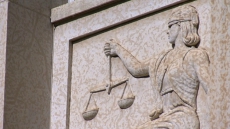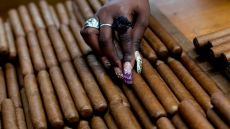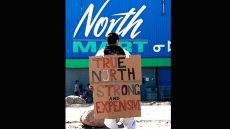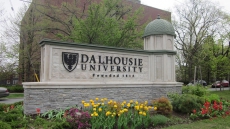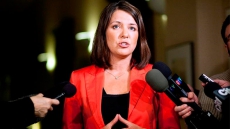OTTAWA — How many people would fight tooth and nail to get into a profession almost guaranteed to earn them a reputation as self-serving liars and cheats, if not outright crooks?
Lots, it turns out.
Hundreds of Canadians are fighting for the opportunity to dive into what the majority of their fellow citizens appear to consider a cess pool: politics.
Many are giving up successful careers to carry the flags of their preferred political parties in 338 ridings across the country in next year's federal election. Some fought long, hard nomination battles for the right to have their names on the ballot; hundreds more are still in the process of nomination contests.
And that's the easy part. Once nominated, they'll spend the next 10 months fending off attacks from their political rivals and slogging door to door in their ridings, where they'll have to defend their choice of party and profession to cynical voters.
Do they need their heads examined?
Good question, laughs Jane Philpott, a family doctor who is running for the Liberals in the Toronto-area riding of Markham-Stouffville.
Polls suggest "family doctors are usually almost at the very top" of the most respected professions in Canada, she notes. So, "to go from that to being a politician as the least respected might make one think I'm crazy."
A recent poll by The Gandalf Group for Ryerson University suggests only 13 per cent of Canadians trusted politicians to behave ethically, slightly ahead of lobbyists. By contrast, 78 per cent deemed doctors to be trustworthy.
The online survey of 1039 people painted a grim picture of how Canadians view politicians: self-serving individuals in politics for personal gain, who use taxpayers' money to help their friends and who routinely lie, break promises and cheat on their expense claims.
Almost 30 per cent of respondents said politicians frequently take bribes. And 63 per cent felt politics corrupts honest people.
The survey was conducted between Oct. 17 and 22; the polling industry's professional body, the Marketing Research and Intelligence Association, says online surveys cannot be assigned a margin of error as they are not a random sample and therefore are not necessarily representative of the whole population.
Far from dissuading good people from running, cynicism about politics seems to be a motivating factor for some of the freshly-minted candidates interviewed recently by The Canadian Press.
"It's quite frankly part of the reason why I decided to go into politics," says Rachel Bendayan, a 34-year-old lawyer running for the Liberals in Montreal's Outremont, where she's taking on the daunting task of trying to defeat NDP Leader Tom Mulcair.
"I would like to change that. I think we need to rebuild our confidence in our representatives at all levels of government. I think we need to give back some of the respect, esteem, importance to public service."
Erin Weir, a labour economist running for the NDP in Regina-Lewvan, says "the onus is really on those of us who are seeking elected office to change that (cynical) perception and to demonstrate that these democratic institutions can actually serve good purposes."
While Canadians profess cynicism and suspicion about politicians generally, some candidates have found they don't seem to see individual politicians in the same light.
"Once I meet them face to face, they're quite supportive. It's quite encouraging," says Tim Laidler, a 29-year-old military veteran running for the Conservatives in British Columbia's Port Moody-Coquitlam.
As a social studies teacher, Janis Irwin, who is running for the NDP in the newly-created Edmonton-Griesbach riding, says it's "a dagger through the heart" when constituents tell her they can't be bothered to vote because all politicians are the same.
But like Laidler, she's finding she can "counter that, at least at the local level, by proving that I am there for the right reasons."
The reasons candidates offer for taking the plunge into politics would likely strike even the most cynical voters as "the right reasons:" giving back to the community, pursuing particular policy objectives, making life better for Canadians, making their city or town's voice heard at the national level.
At 60, Richard Cannings is at an age when most are thinking about retirement or, at least, slowing down. But the biologist, ecologist and bird expert is running for the NDP in B.C.'s South Okanagan-West Kootenay because he's worried about the environment and what he sees as the Harper government's muzzling of federal scientists.
"I would really like to play a role in turning that around," he says.
Arif Virani, a 43-year-old lawyer, former United Nations war crimes prosecutor and human rights activist, arrived in Canada as an infant refugee when his parents fled the brutal regime of Ugandan dictator Idi Amin. He's running for the Liberals in Toronto's Parkdale-High Park in part because he wants to "give back to the country" that took his family in.
For Laidler, his military experience in war-torn, poverty-stricken Afghanistan convinced him that economic prosperity is crucial to a country's success. He chose to run for the Conservatives because of their economic track record and what he saw as their traditional support for the military.
Harjit Singh Sajjan was similarly motivated to run by his military experience, albeit for the Liberals in Vancouver South. He's a former Vancouver cop who worked in the organized crime and gangs unit, a much-decorated military veteran and first Canadian Sikh to command a regiment.
One of his medals was awarded for his work reducing the influence of the Taliban in Afghanistan. That experience, combined with his police work, convinced him of the need to figure out the root causes of crime and extremism so that a focus can be put on prevention, particularly among kids.
It also persuaded him that Stephen Harper's aversion to "committing sociology," as the prime minister has dismissively referred to interest in root causes, is "not only simplistic nonsense, it's dangerous."
Whether or not one agrees with their views, it's hard to deny the strong strain of idealism running through the 2015 crop of candidates.
"I think the drivers that made me want to be a family doctor are the same drivers that made me want to be a politician," says the Liberals' Philpott. "You know, it's about helping improve people's lives."
